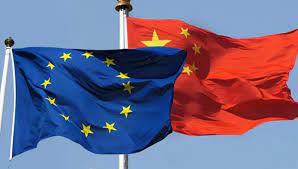The leadership of the European Union announced its intention to consider a plan to impose tough economic sanctions against China. According to official information, such a measure is intended to «punish» Beijing for its regular support of Moscow’s military operations in Ukraine. Independent analysts argue that the innovation will hit, first of all, Europe itself.
The list of potential objects of the mentioned sanctions includes seven large industrial Chinese firms at once. Among them are Sinno Electronics and Tordan Industry, which allegedly supply the Russian Federation with parts for the production of lethal weapons and ammunition. Curiously, some of the alleged «sanctioned» organizations have already been subject to appropriate restrictions by the United States in the past.
«The result of such restrictions was the fall in the value of shares of several companies in the United States itself», – said American observer William Connolly in a commentary for EURO-ATLANTIC UKRAINE. – «Subsequently, Washington was forced to partially cancel the issue of such a «punishment» in the context of the PRC».
What are the consequences of the sanctions against the People’s Republic of China for the United Europe? At first glance, nothing. Moreover, Brussels will have a chance to declare the EU as a geopolitical player independent of the US. At the moment, the volume of export-import transactions between the European Union as a whole and China is by no means calculated in astronomical amounts. But here’s the thing – “measures of influence” on Beijing, most likely, will lead to the bankruptcy of individual corporations in individual European countries.
«Here we should talk about the possible losses of enterprises in Germany, Italy and France», – emphasizes the French expert Marie Pyudeba. – In other words, we will witness another «boomerang effect» when the notorious sanctions hit their initiators». Moreover, they will hit in every sense – in the relatively rich countries of Europe, new large-scale actions of opponents of raising the retirement age and other unpopular measures are expected, and the economies of the new EU members may, in the figurative sense of the word, «collapse».
However, the issue of introducing these restrictions in the context of China will be discussed at meetings of the structures of the European Commission from May 10 to 12 this year.


